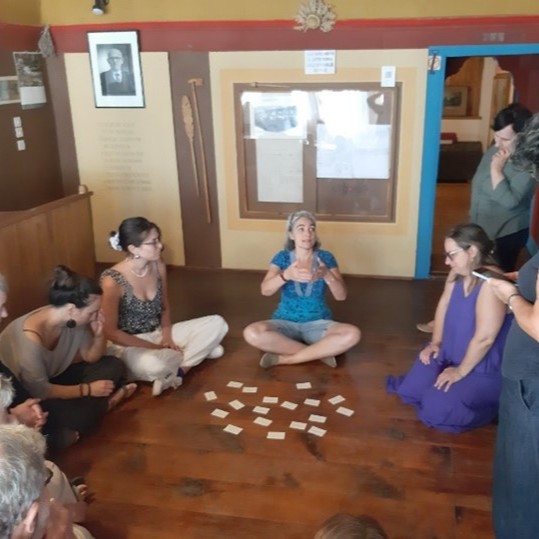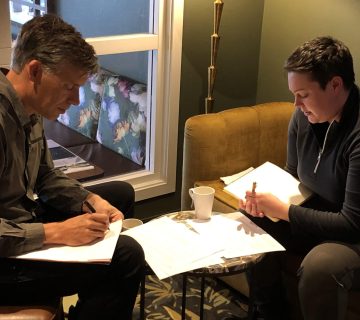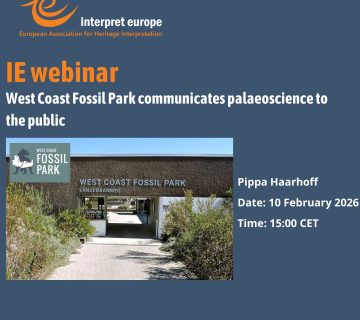Greek mountain villages, with distinctive traditional architecture of local stone and wood, can offer much more than just a tourist attraction.
I was born and raised in the mountains of South Pindos, in Evrytania. I have been working for more than two decades in education, specialising in environmental and cultural education in primary and secondary schools. I perceive forests, rivers, and mountain communities as unified living spaces, where cultural heritage unites people, strengthens communities, and inspires actions for a shared sustainable future.
One of the most interesting and challenging aspects of my work in terms of communication is the ecological and cultural interpretation of both the university’s research fields and, more broadly, the mountain ranges and the activities they support, such as livestock farming, agroforestry, and small-scale traditional activities such as logging, hunting, and gathering herbs, fruits, and mushrooms.
With this background and motivation to strengthen my communication skills, I participated in the Interpret Europe Certified Interpretive Writer (CIW) course held in Zagori from August 25-29, 2025. The course was hosted in the old Girls’ School of Kato Pedina (built in 1902).
During the training, we worked in the field and in the classroom, individually and in groups, practicing the use of interpretation principles as a means of transforming visitors’ experience of a place into something personally meaningful, while also cultivating their critical thinking and allowing them to make connections to universal values, such as respect and sustainability. We were given various opportunities to experiment with different types of writing (haiku, interpretive signs, audiovisual interpretation, etc.) with the ultimate goal of being able to design interpretive signs for specific elements of the natural and cultural heritage of each place we know well.
As our trainer aptly stated: “We learn how to bring words to life in order to present the nature and culture of our region through texts. In this way, Zagori becomes a link to the past and an inspiration for the future.”
I congratulate and thank the organisers and the bodies that supported them, both for the excellent training we received on the interpretation of the natural and cultural environment, and for daring to do so in mountain communities that are not at the centre of tourist traffic. The communities of Kato Pedina and Koukouli Zagori supported our educational experience holistically with the authenticity and breadth of their thematic fields.
As a new member of the Interpret Europe community, I feel that I share common ideals and communication tools in the service of the natural and cultural heritage of the Mediterranean and the whole world! After graduation, we are not just colleagues, but partners and friends, continuing our creative collaboration.
Vasiliki has studied educational science, forestry and ecology. As a researcher at the Department of Forestry and Natural Environment Management at the Agricultural University of Athens in Karpenisi, she supports research projects on the resilience of forest and agroforest ecosystems, focusing on old growth forests, dendrochronology and forest soil science (https://agroforestry.dasologia.gr/). Vasiliki can be contacted at: vaslappa@aua.gr.
To cite this article: Lappa, Vasiliki P. (2025) ‘An educational experience that motivates and unites’ in Interpret Europe Newsletter 3-2025, p. 9.
Available online: Newsletter autumn 2025




